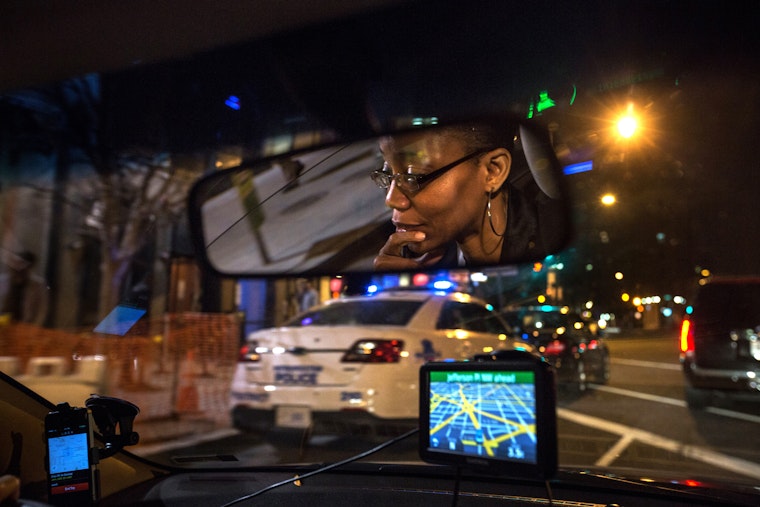Uber and Workers’ Rights in the New Economy
By Jon Liss

At first glance, the California Labor Commission’s decision last month to award Barbara Ann Berwick some $4,000 might not seem like a big deal. But the ruling—to classify Berwick, a driver for the ride-hailing company Uber, as an employee, rather than an independent contractor—could have a sweeping impact on the growing part of the labor force known as “contingent” or “precarious” workers, a vital part of the new economy.
Here’s why: Companies are required to contribute to an employee’s Social Security and unemployment insurance. They are potentially responsible for paying overtime once an employee has logged more than eight hours of work. And employees enjoy more protections against discriminatory or arbitrary dismissal than independent contractors.
The commission’s decision applied to Berwick only, and Uber has appealed; the company has won other legal challenges, arguing that it is merely an app, with no responsibility for the length of its drivers’ shifts or other working conditions. But by declaring Berwick an employee, and finding that the company had a significant amount of control over the worker, the ruling set an important precedent—one that could fuel several class action suits against Uber, and could have implications not only for the company, but for the future of work.
Reform is needed. Uber and other transportation network companies are currently governed by a hodgepodge of regulations across the country. Regulators and state legislators are trying to catch up with technology that is radically rearranging the economy. At present, new economy workers are being regulated by old economy laws. In particular, new technology and the way work is organized allows companies to shift employees into contractor relations—leaving workers responsible for paying their own taxes and getting their own health insurance, while providing no benefits connected to their work.
The struggle between labor and capital is nothing new. Working people continually struggle for greater organization and power, and hence more control—more time off, better wages, better benefits, and economic security. Capital struggles to dilute working-class solidarity, and to atomize individual workers. The balance of power is codified in a regulatory regime that determines who wins and who loses. In the 1930s and ‘40s, as working people organized and the crisis of depression and war forced governmental action, an entire body of laws was created that protected most workers. But the balance of power has shifted today, when fewer workers are organized and more people work remotely, or in temporary or short-term jobs that provide little interaction with managers or bosses.
The Open Society Foundations launched an inquiry into the Future of Work, examining these forces, among many other aspects of the labor force of the 21st century—the role of technology, rising new business sectors, emerging regulatory regimes, and the impact they all have on working people and how they shape the society we will live in. Questions about the balance of power between workers and companies, and the way regulators respond to disruptive new capitalistic forces, is at the center of this inquiry.
Workers in the new economy need to lead the fight to define the conditions they work in and fight for a set of rules that protect their interests. This battle is being waged, with mixed success. It was perhaps not surprising that California labor regulators, reflecting strong levels of organization of working people and people of color in that state, ruled in favor of the driver seeking employee protections. Unfortunately, I suspect in Virginia, where I work and which has a very different balance of forces as reflected in its right-to-work laws, similar battles may meet with different outcomes—and demand new strategies.
In all cases, however, it is clear that technology has not liberated workers from the need to organize and fight. In fact, if we are to maintain or build on important advances like the 40-hour work week, paid holidays, and Social Security benefits, the California regulatory win is but the start of a new era of working-class struggle.
Jon Liss is co-executive director of the New Virginia Majority, and executive director of Tenants and Workers.

